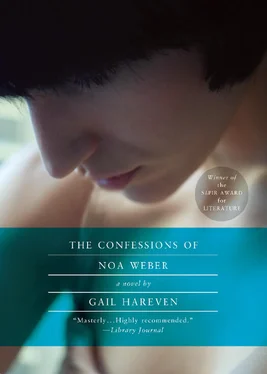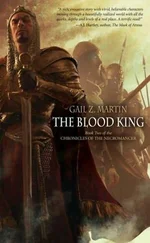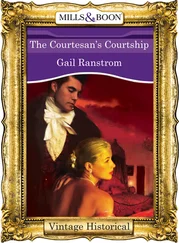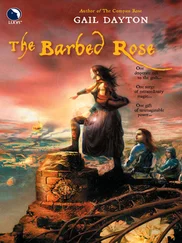After the birth I did not give the experience much thought. The baby’s presence and Alek’s absence were more compelling, and it was only half a year later, on one of our invasions of Yoash’s apartment, that I told Alek. Not what preceded the hallucination or followed it, but only the visionary delusion, with his presence expurgated. Alek, his hands clasped behind his neck, listened as if what I was telling him was the most natural thing in the world, and although it was interesting, even very interesting, there was nothing strange or surprising about it. “It happens that a person dreams a dream that seems not to belong to him,” he said quietly, as if stating a fact, and reached under the blanket for the packet of cigarettes. There was no mystical mumbo-jumbo or gush in his reaction, and this made it easier for me to talk. “That’s exactly how I feel,” I said, “although it wasn’t exactly a dream … but that’s what it felt like, as if I dreamt somebody else’s dream.” “Except that now it’s your dream, too,” he replied with a smile, and pulled me onto his chest.
As I lay resting on him like this, I thought that there really was nothing to be done with this alien vision, which was like a strange object bequeathed me as a legacy by some primeval mother. I didn’t choose it, I didn’t ask for it, it simply fell on me as if from another world, and now it was mine. Like this love.
It was morning, a pale winter sun shone into the shutterless room. The portable electric heater didn’t work very well, only one of the coils was working. But Alek got up and piled all the blankets he found in the closet on top of us, and between the hot and the cold we were content.
NIRA WOOLF
Nira Woolf is forty-five, this is her age in my first book, Blood Money , and at this excellent age she remains in the books that follow. The setting in which she operates changes from book to book — Israel at the beginning of the eighties is not the Israel of today, even as the arena of a detective story — but my fighting lawyer doesn’t change, only the causes she fights for change in accordance with the period. In Blood Money , which was about the plunder of Palestinian land, through patients’ rights in The Shattered Man , through children’s rights in The Boy Who Didn’t Know How to Ask , through sexual harassment in the army in Compulsory Service , through the shocking corruption in Birthright , through the fear of AIDS in The Stabbing , up to the militant feminism of the last four years: Dead Woman’s Voice , which as I may have already mentioned turns on a case of incest, and What Did Mrs. Neuman Know? , in which my feminist lawyer does battle with a ring of traffickers in women.
When I started writing about Nira I was twenty-six years old, and when I started to imagine her I was even younger, and forty-five seemed to me a venerable and dignified age. An age at which nobody calls you a “girl” any more. Although the way I constructed Nira, nobody would have dared to call her a “girl” at the age of twenty-six either.
From the outset it was clear to me that my combative lawyer was single, that she had no children and no longings for children, or needless to say for a husband, either. The mother of children is not free to jump into her car and fly to the murder scene when a phone call wakes her up in the middle of the night, nor can she rush around with a revolver ready to fire. And in general, children bring up a lot of questions I had no desire to deal with on the page or the computer screen. For instance: Who looks after them when their mother is running around with a revolver? A nanny? And who takes them to school at quarter to eight in the morning? And what happens when the disappearing client, the one who’s suspected of murder, suddenly turns up at the house? And on what Afghan carpet can my Nira have a spontaneous fuck when the plot approaches its suspenseful climax? The one with the toys strewn over it?
When I wrote Blood Money I didn’t know that it was the first in a series, and I wasn’t even sure that it was a book at all. But in the following books, too, I was not tempted to give her a child, because how would this child suddenly arrive on the scene? Could I allow her to get mixed up with gangsters when she was eight months pregnant? From a feminist point of view it might actually be amusing to send a woman with a bad attack of heartburn to the Supreme Court on a case, and make her whip out her gun on the way to the hospital to give birth. The critics would scream their heads off. Especially those who always attack me on the grounds that “Nira Woolf isn’t a feminist heroine, but a macho man disguised as a woman.” But even assuming that I made her pregnant just to annoy the critics, what then? Nira Woolf lies helplessly in the delivery room and waits for the dilation to grow big enough for them to give her a shot at last? The midwife raises and parts Nira’s legs? The midwife bends down between our heroine’s legs to make the cut?
In a general outline of the next book I thought of giving Nira a ward or an adopted child. I even knew who the little girl was. The daughter of Anna, a foreign worker who substituted for Mrs. Neuman’s regular nurse for a week, and who was the sole beneficiary of the surprising new will dictated by Neuman to Woolf. “Sasha” I would call the child orphaned in What Did Mrs. Neuman Know? , and in the exposition describing the background to her adoption I would briefly relate how the kind-hearted lawyer traveled to Kharkov to find the nine-year-old who had become the beneficiary herself (after Anna’s body was discovered on Palmahim Beach in the previous book), and how it came about that my heroine returned to Israel with the little orphan in tow.
The trouble with this idea, which I liked in itself, was with the limitations it would impose on me in the continuation of the series, assuming I wanted to go on with it. Nira Woolf could remain forty-five forever, it was the age she was meant to be and I had no problem with it, but the little girl could on no account go on being nine years old in book after book, because that would be ridiculous. I couldn’t possibly send her to the fourth grade every year, make her mourn her mother in every new book, and let her be stuck with difficulties in Hebrew forever.
The trouble with children is that they have to grow up, and I have no idea how to deal with the literary problems presented by this fact. So that in the end it appears that Anna’s orphan will have to be left to grow up by herself in Ukraine, nameless and outside the plot of this book.
THE DAY AFTER GIVING BIRTH
The day after giving birth I felt fine. Stupidly happy in a way that makes me cringe with embarrassment to this day.
In the afternoon, a couple of hours after they transferred me to the maternity ward, they brought me the baby. A nurse put her into my arms, and I — forgive me, whoever’s job it is to forgive — looked at my daughter for the first time and the first thought that crossed my mind was: so small and so perfect, he won’t be able to help loving her.
Her head was covered with a lot of black hair, and I rejoiced in this downy hair, and in the wrinkled little face, and the tiny hands imprisoned in their sleeves, only because I felt that Alek would have to surrender to this tiny softness. And when I put her to my breast in the first clumsy attempt to feed her, I silently rejoiced in fantasies of how he would fall in love with her. But it wasn’t the loving father she would gain that I was thinking of, it was the crumbs of this inevitable paternal love that would no doubt fall into my own lap. After all, it was from me that this sweetness came, and it was impossible for it not to project itself onto me. The baby slept, she didn’t want to wake up and suck, I still hadn’t seen the color of her eyes, and I arranged my hair becomingly on the pink pillowcase, and thought how charming the two of us looked, Madonna and child.
Читать дальше












